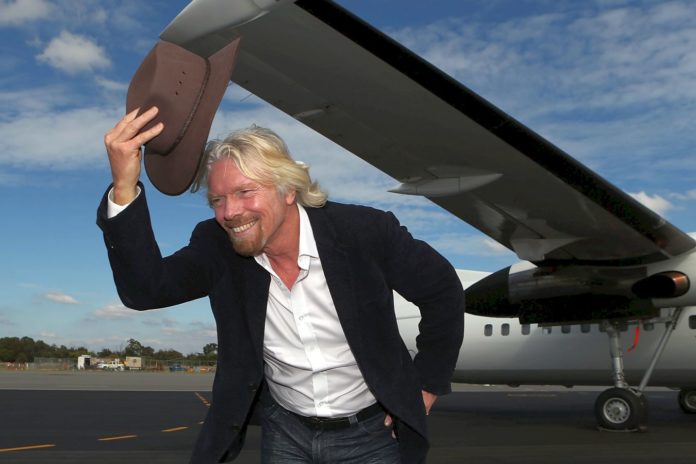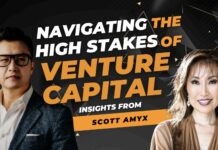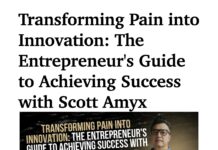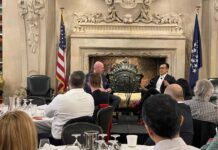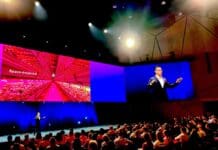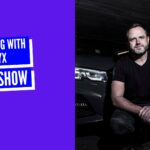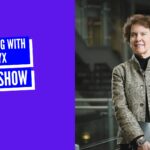Richard Branson is an English business tycoon and philanthropist who owns the Virgin Group. Starting with Virgin Records, the Virgin group has had more than 400 companies under its umbrella to date. A serial entrepreneur, Branson has led an extraordinary life full of ups and down. He has embraced his moments of success and struggle, and with his indefatigable spirit, he has turned his failures into stepping stones for success.
Branson always had the entrepreneurial streak in him and a knack for making money. He could eye an opportunity where there was none and make it into a successful business. The iconic Virgin Records was his first venture, with its humble beginnings as a record shop in Oxfordshire, England. Eventually, his efforts in music led him to establish Virgin Atlantic and bring all his companies under the umbrella of Virgin Group. And today, at the age of 67, he is going strong and continues to expand his more than fifty-year-old legacy.
Early Years
Richard Branson was born as Richard Charles Nicholas Branson in 1950 in Surrey, England to Edward James Branson and Eve Branson. As a child, he did not fare well in school. Because of his dyslexia, Branson was always struggling to keep up in school. He went from Scaitcliffe School to the Stowe School, a boarding school in Buckinghamshire, England. At 16, he decided to drop out for good. This socially unconventional move led him to establish Student, a youth-culture magazine for students. Student’s first issue came out in 1966 and sold $8,000 in advertising and 50,000 copies released for free.
Making Virgin Records a Top Records Label
One entrepreneurial idea led to another. His residence in a London commune entrenched him in the British music scene. This led to the birth of Virgin, a mail-order company that provided his magazine’s funding. Eventually, the company did more than just fund his magazine; the company’s earnings also enabled Branson to open a record shop in Oxford Street, London.
Virgin Records signed on Mike Oldfield as the first artist back in 1973. Oldfield’s song, “Tubuler Bells” topped the UK charts for a staggering 247 weeks. The stunning success of the very first artist that Virgin Records signed clearly shows Branson’s knack to spot talent. This success led to more record deals with now iconic artists such as the Rolling Stones, Sex Pistols, and Culture Club. These bands catapulted Virgin Records among the top record companies worldwide.
Hits and Misses
Virgin Records, however, was only able to sustain its success for so long. Financial struggles added up by 1992 and the company was having problems just staying afloat. The next year, Branson had to sell it to THORN EMI for $1 billion. Prior to this setback, however, Branson added two travel companies under his belt: the Voyager Group and Virgin Atlantic. His first store in Oxford Street eventually multiplied into a series of Virgin megastores.
Selling Virgin Records wasn’t easy for Branson; it was mentally traumatic. There were reports of him crying after signing the contract. But he did not let the loss stop him from pursuing other achievements in the music business. In the same year of the sale, he opened Virgin Radio. Three years later he was able to establish V2, his second record company that signed on artists like Tom Jones and Powder Finger.
Apart from having to sell Virgin Records, Branson also suffered from other business failures such as Virgin Cola, Virgin Cosmetics, and Virgin Brides. Virgin Cola is the most popular flop, capturing only 0.5% of the US market share. The company had to stop producing the drink in 2012. Virgin Cosmetics’ products ranged from homeware, jewelry, and beauty products. The cosmetic products were sold online and in Virgin stores. Virgin Brides was a short-lived venture, opening different locations in England back in 1996. The last store was closed in 2007.
All these ventures might have shut down, but they truly demonstrate the unstoppable spirit of strive Branson has. Never for a moment did he go into his shell; rather, he learned from every single failure of his and used it as a stepping stone to future success. It also amply shows his innovation streak in venturing into diverse businesses without the fear of losing.
From Music to Media, Finance, Outer Space and Everything in-between
Branson diversified his businesses and added an airline, Virgin Atlantic, in 1984. He leased his first 747 to fly from New York to Gatwick, making Virgin Atlantic compete against British Airways. His other big firms include Virgin Media, Virgin Money, and even Virgin Trains. All his companies fall under the Virgin Group, which includes more than 200 companies spread throughout the world — countries such as Canada, Australia, the US, and parts of Asia, Europe, and South Africa.
Branson has gone a long way from simply opening up a business to fund another. He established his new businesses without having to sacrifice the Virgin Group’s reserve and earning more for companies that maintain the brand name. At the same time, he ends up expanding his ventures to other sectors such as mobile telecom.
Venturing into Space and High-Speed Travel
With his ability to look ahead and constantly move forward, it comes as no surprise that Branson partnered with Scaled Composites to establish The Spaceship Company. The SpaceShip Company is a Virgin Galactic company that Branson established so he could continue his dream of exploring space and bringing that experience to more individuals. This business exemplifies Branson’s ability to move on despite past failures. In 2014, the first test flight destroyed the original ship. But this year, Virgin Galactic’s SpaceShipTwo (SS2) successfully made its first test flight of the craft’s atmospheric re-entry system. Virgin promised that SS2 could accommodate six passengers and two pilots. The spaceship’s size would also provide the out-of-seat zero-gravity experience and large windows to see the rest of the view.
Since Branson’s expansion into the final frontier, more than 700 customers have bought tickets to space flights. As of this year, Branson released a statement saying they’re not likely to visit space in the next six months and that he is very disappointed about that. Branson is a hard taskmaster and a highly ambitious business leader, and it shows in the statement of Mike Moses, president of Virgin Galactic. Moses recently said, “Richard always poses a challenge. He likes to push very hard.” Branson works extremely hard and expects the same from his employees.
Branson is looking further into the future with his latest investment in Hyperloop One, a company building high-speed transport and cargo pods that move at 250 miles per hour. In order to achieve this incredible speed, magnetic levitation moves the pods on top of a track resulting in airline speeds that let the pods move over long distances.
The Philanthropist in Him
Branson’s incredible journey isn’t just about creating wealth, but also about putting it to worthy causes. Branson believes in giving back to society. He started his first charity when he was just 17. Branson has been a regular philanthropist to the educational charities working in African countries. Further, he has pledged $3 billion in the next ten years to address the burning issue of global warming.
Richard Branson: Perseverance Personified
Whenever Virgin Galactic is likely to send non-astronauts into space, Branson’s story proves that relentless efforts, learning from mistakes, constantly discovering oneself, and perseverance leads to grand success and progress of individuals and the society. His spirit also shows how past mistakes are just more reasons to move on and venture into new achievements.
How are you striving? Sign up to be notified when the Strive book becomes available.


